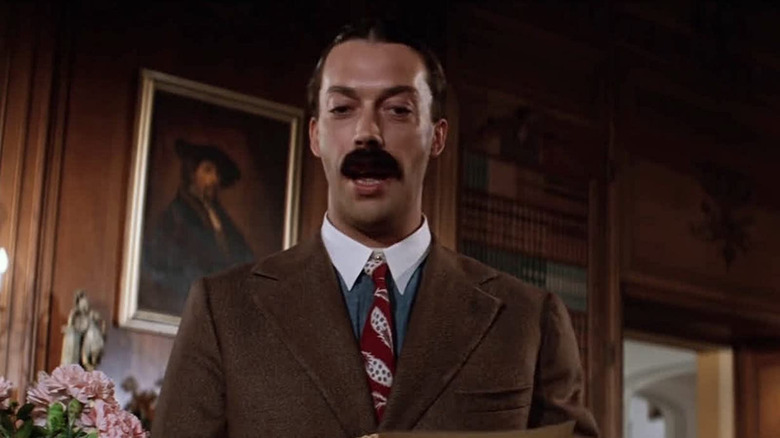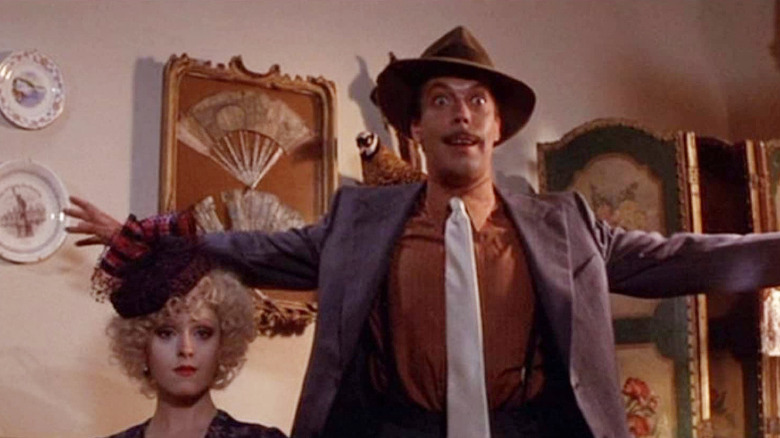Tim Curry Saw Annie As The End Of A Hollywood Era
Movie genres have gone in and out of style as long as movies have been a thing. In the 1940s and '50s, Westerns were all the rage, but nowadays you rarely see them. Superhero movies dominated the box office throughout the 2010s and have continued to do so in 2022. But even when you start seeing a certain type of movie less and less, it rarely disappears completely. Case in point, there are still Westerns being produced to this day, even if they're nowhere near as ubiquitous as they were once upon a time in Hollywood.
For Tim Curry, however, the 1982 film adaptation of the hit stage show "Annie" felt like the end of the line for movie musicals. Curry, famed for his work in "The Rocky Horror Picture Show" and "It," starred in the movie as "Rooster" Hannigan, a villainous con artist who plots to pose as the father of the titular orphan Annie in order to gain the reward money offered by her uber-wealthy caretaker, Daddy Warbucks. Curry, who's best-known for his work playing villains, weirdos, and literal monsters, put in another fun performance in "Annie" as a mustache-twirlingly evil grifter who is (er, spoiler?) ultimately outwitted by a group of plucky children.
Directed by John Huston (yes, that John Huston), "Annie" was a commercial misfire that grossed $57 million at the box office against a reported $40 million budget (though some estimates put the number at closer to $50 million). But while it was far from the last big-budget Hollywood musical ever made, Curry — in a way — was right to see the film as the end of an era prior to its arrival.
The last of a dying breed
In a 2020 interview with Forbes, Curry and legendary comedian Carol Burnett — who co-starred in "Annie" as Rooster's sister Agatha Hannigan, the alcoholic manager of the orphanage where Annie lives at the start of the film — about their roles in Huston's musical. Curry recalled speaking with his co-star, Bernadette Peters (who played Rooster's girlfriend and fellow crook, Lily St. Regis), about the possibility of their movie being one of the last of a dying breed during filming:
"I remember turning to Bernadette and saying, 'This may well be the last big movie musical.' That was a distinct possibility, and, pretty much, it was. Hollywood rarely makes a musical of this kind, and on this scale these days, and that's a shame. At the time, there was a lot of criticism about how much the movie cost. It would be a drop in the ocean these days."
It's true that in an era of ever-inflating studio movie budgets, the $40-$50 million price tag for "Annie" wouldn't make anybody bat an eye. Again, though, the movie's somewhat paltry box office earnings more or less validated the concerns among studio heads at the time of its release.
Unsurprisingly, big-budget movie musicals began to slow down shortly after "Annie," but as I said earlier, you rarely see an entire movie genre die out completely. The success of film musicals like 2012's "Les Misérables" proves that the genre is still viable, and even the 2014 "Annie" remake was sort of a box office hit (if only barely). So while there may be a kernel of truth to what Curry said, movie musicals are still holding on.

